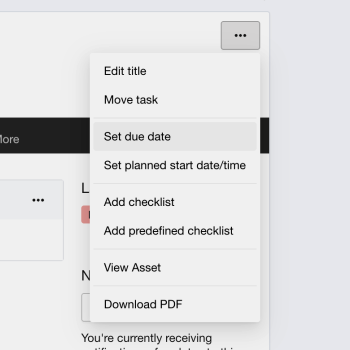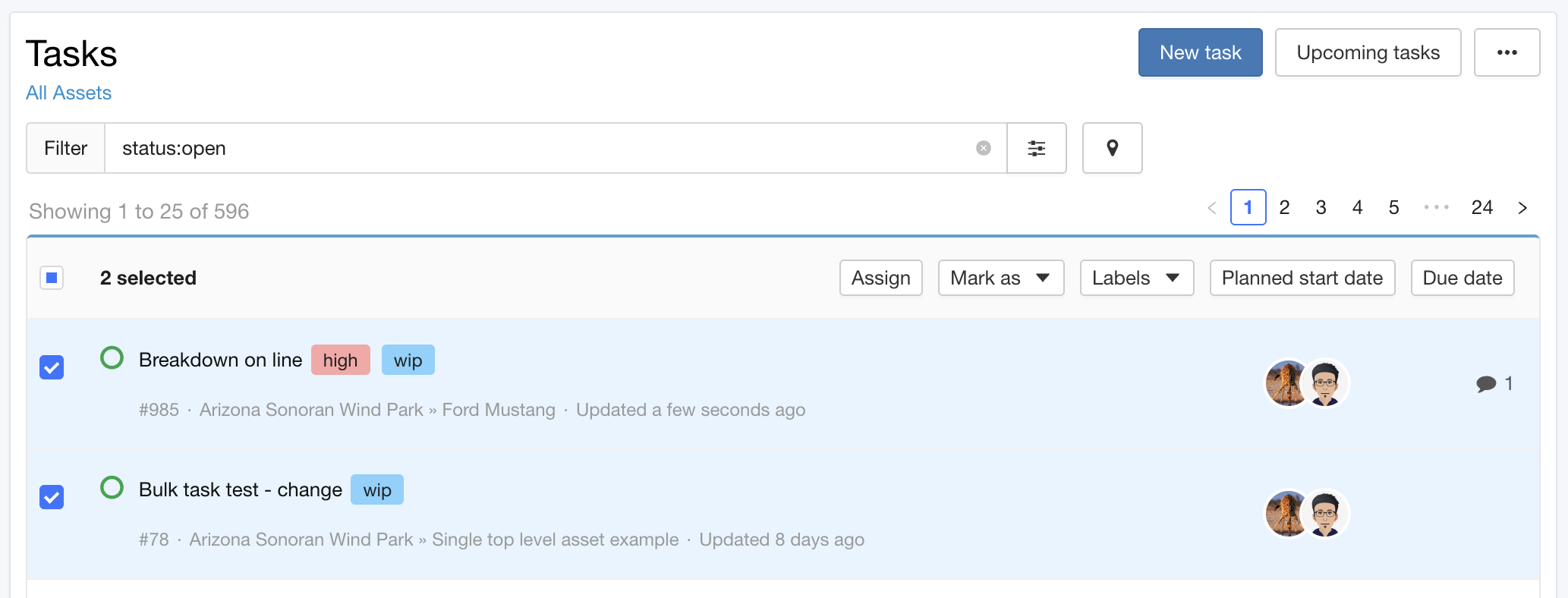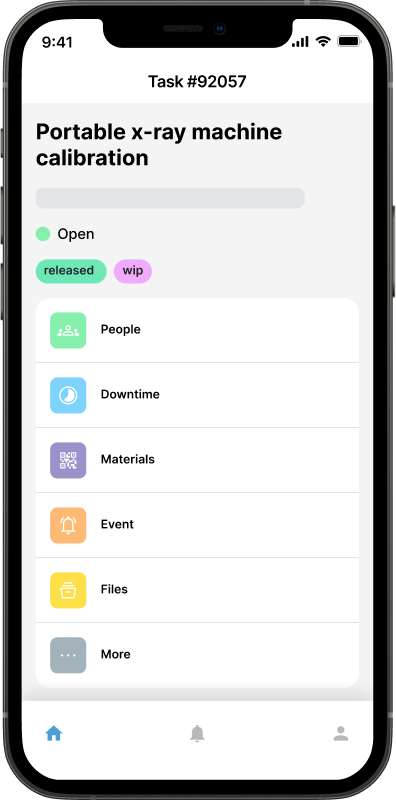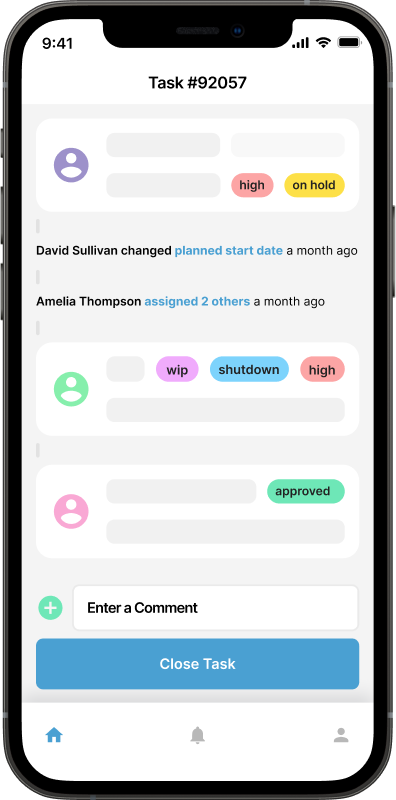Add Due Dates to Any Work Order in Maintainly – Including Reactive and Meter-Based PMs

A More Flexible Way to Manage Work Order Deadlines
We’re excited to announce a new feature in Maintainly that gives you more control over maintenance scheduling and task management:
You can now add a due date to any work order, including reactive jobs, meter-based preventive maintenance (PM) tasks, and any non-time-based PM work orders.
Previously, due dates were automatically assigned only for time-based PMs, based on their interval settings (e.g., every month, every quarter). Now, you can manually set a due date on any type of work order, giving you better visibility and control over when every job needs to be completed.
What’s Changed?
Before this update:
Time-based PMs had an automatic due date based on the PM schedule
Meter-based PMs (generated from things like running hours, production counts, or other asset readings) didn’t include a due date, only a Planned Start Date if manually entered
Reactive work orders also didn’t include a due date, just a Planned Start Date, which was optional
Now:

Every work order type in Maintainly can have a due date
Due dates can be set manually during work order creation or editing
Due dates are visible on the work order screen, in reports, and on scheduling dashboards
Existing work orders can have a due date added retroactively
Why This Matters: Real-World Benefits of Work Order Due Dates
Here’s why this update will make your maintenance management even smoother:
1. Better Prioritization of Reactive Work Orders
For unplanned, reactive maintenance, adding a due date gives your team a clear target for completion.
Example:
If a critical HVAC failure happens, you can now set a due date of "within 24 hours" right in the work order, making it easy for technicians to see the urgency and prioritize their workload accordingly. Combined with the appropriate task label, this will draw attention to the most urgent priorities.
2. Improved Visibility on Meter-Based PM Tasks
For PMs triggered by asset readings (like engine running hours or production cycles), assigning a due date helps the team stay on track after the PM is generated.
Example:
If a generator crosses its 500-hour service threshold, assign a due date of "within 7 days" to ensure a timely completion that is appropriate to the
3. Stronger SLA Tracking and Compliance
If your organization operates under Service Level Agreements (SLAs) or internal performance KPIs, having due dates on all work orders makes it easier to:
Track overdue jobs
Report on on-time completion rates
Manage contractor response times
Example:
If you promise a 48-hour response window for priority repairs, due dates allow you to measure and report on SLA compliance across all work orders, not just PMs.
4. Enhanced Scheduling and Technician Workload Management
With due dates across all work order types, your maintenance planners can now:
View all upcoming work in one dashboard, sorted by due date
Allocate resources more effectively
Reduce the risk of missing critical reactive or meter-based jobs
Example:
A planner can now pull a report of “All Jobs Due This Week” across PM, reactive, and meter-triggered work.
How It Works: Adding Due Dates in Maintainly
The new Due Date field is available in:
The task creation screen
The task editing screen (via the three-dot menu)
API endpoints (for customers using external systems or IoT integrations)
For reactive work orders and meter-based PMs, due dates are optional but highly recommended if you want clearer scheduling visibility.
Planners and admins can also bulk-edit due dates for multiple work orders at once (ideal for backlog management) by navigating to the task list page, selecting the checkbox next to the relevant tasks and using the due date shortcut option.
 Reporting and Dashboard Updates
Reporting and Dashboard Updates
With this update, due dates are now:
Visible on the task list view
Exportable via the task list view three-dot menu
Usable as a filter criterion in the advanced filter (e.g. “Show me all tasks past due”)
 Common Use Cases for the New Due Date Feature
Common Use Cases for the New Due Date Feature
Facilities Management: Prioritize reactive jobs in office buildings, aged care homes, or hospitals.
Manufacturing Plants: Set deadlines for machine-based PMs triggered by operating hours or cycle counts.
Service Providers: Track SLA-driven response times for client-reported issues.
Nonprofits and Multi-Site Operators: Keep dispersed maintenance teams accountable with clear work order deadlines.
More Control, Better Planning
This new feature is part of our ongoing mission to make Maintainly the most flexible, easy-to-use CMMS platform for maintenance teams in every industry.
By allowing due dates on all work order types, we’re giving you better tools for scheduling, prioritization, reporting, and performance management, whether you’re managing a single site or a statewide network of facilities.
Ready to start using work order due dates?
Log in to Maintainly now and start adding due dates to your upcoming jobs.
If you want help setting up best practices for due date management, contact our support team - we’re here to help!
Further Reading

What is CMMS?
A Computerized Maintenance Management System (CMMS) is a software solution that streamlines and automates maintenance management processes, including work orders, preventive maintenance, asset tracking, and inventory management, to optimize the efficiency and performance of organizational assets. But let's dig into the details...
Read more →
Benefits of CMMS
CMMS will aid and inform technicians out in the field, as well as decision makers, on maintenance work that has been done, will be done soon, or is planned to be done in the future. Broadly speaking, the benefits of CMMS can be broken down into three categories: management; visibility; and cost control.
Read more →
